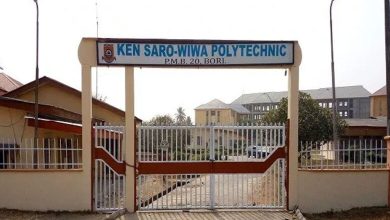Best Universities to Study Physics in Nigeria
Physics is the branch of science concerned with the nature and properties of matter and energy. The subject matter of physics includes mechanics, heat, light and other radiation, sound, electricity, magnetism, and the structure of atoms.
In today’s article, we’ll be looking into the best universities to study Physics in Nigeria. It’s a four years Bachelor’s Degree Program in most Nigeria universities.
Best Universities to Study Physics in Nigeria

Below are the best universities to study physics in Nigeria
1. University of Lagos
The University of Lagos should be at the top of your list if you want to study physics in Nigeria.
Founded in 1962, Unilag is one of the leading universities of science and technology in West Africa. It offers undergraduate and graduate programs in physics, with concentrations in atmospheric physics, electronics, geophysics, mathematical physics, nuclear and particle physics.
Unilag has highly qualified faculty, many with PhDs from top universities abroad. The Department of Physics has well-equipped research laboratories and computing facilities. As a student, you’ll have opportunities to participate in groundbreaking research and work closely with professors.
With its excellent programs, research opportunities, and global connections, the University of Lagos provides a world-class education in physics. If you dream of becoming a scientist and want to study at one of the best universities in West Africa, look no further than Unilag.
2. Covenant University
Covenant University in Ota, Nigeria offers innovative physics programs for aspiring scientists.
Covenant University’s Department of Physics offers B.Sc. degrees in Physics, Applied Physics, Geophysics and Meteorology. The curricula focus on theoretical foundations as well as practical applications of physics.
The department emphasizes research and collaborates with leading institutions worldwide. Students can participate in ongoing research projects and also pursue their own interests. Recent areas of research include renewable energy, nanoscience, and space physics.
A physics degree from Covenant University opens up diverse career paths in science and technology. Graduates are well prepared for jobs in research institutions, universities, hospitals, and industries like oil and gas, aerospace, telecommunications, and renewable energy. The program also provides an excellent foundation for postgraduate studies in physics, applied physics or related disciplines.
READ ALSO: Best Universities to Study Mathematics in Nigeria
3. University of Ibadan
The University of Ibadan in Oyo State has a long-established physics department with a notable list of alumni.
The department has produced many renowned physicists over the years, including Professor Francis Allotey, the first Ghanaian nuclear physicist and a founding member of the African Physical Society, as well as Professor Abdus Salam, Pakistan’s only Nobel laureate and a theoretical physicist who helped develop the electroweak theory.
Other notable alumni include Professor Kayode Soremekun, a former director of the African School of Fundamental Physics and its Applications, and Professor Michael Onyeozili, a former head of physics at the University of Ibadan. The department continues to produce excellent physicists today through its undergraduate and graduate physics programs.
With such an accomplished list of former students, the University of Ibadan physics department has a proven track record of nurturing talent. For any aspiring physicist in Nigeria, the University of Ibadan would be an excellent place to study and follow in the footsteps of groundbreaking African scientists. Between the prestigious reputation, accomplished faculty, and opportunities for hands-on research, physics students at the University of Ibadan receive a top-notch education.
Conclusion
A physics degree provides a strong analytical and technical foundation that prepares you for many jobs across science, education, engineering and technology sectors. With a higher degree and experience, you can advance to senior research and leadership roles.
FAQ’s
Below are some of the most frequently asked ones:
1. What degree programs are offered for physics?
- Bachelor of Science (BSc) in Physics
- Master of Science (MSc) in Physics
- Doctor of Philosophy (PhD) in Physics
2. What are the entry requirements?
To apply for undergraduate physics programs, you will typically need a Senior School Certificate Examination (SSCE) or GCE O-Level with credits in related subjects like mathematics, English, chemistry and biology. For postgraduate degrees, you will need a bachelor’s degree in physics or a related field.
3. What jobs can I get with a degree in physics?
Some potential career options for physics graduates in Nigeria include:
- Physicist
- Research scientist
- Lecturer
- High school physics teacher
- Data scientist
- Systems engineer
- Technical writer
- Information technology consultant.









